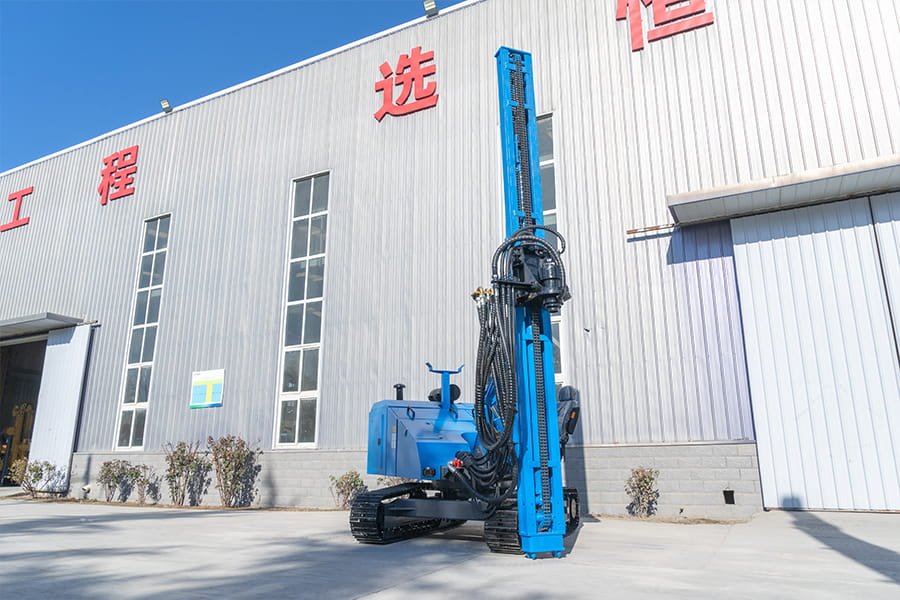
1. Regular Inspection and Cleaning
Daily Inspections: Conduct thorough daily inspections of all components. Pay special attention to the hydraulic system, motor, and electrical connections.
Clean the Machine: Regularly clean the piling machine to remove dirt, dust, and debris. Keeping the machine clean helps prevent blockages and operational issues.
Check for Wear and Tear: Inspect for signs of wear and tear, especially on the piling hammer and hydraulic hoses. Replace any damaged parts
immediately to avoid further damage.
2. Hydraulic System Maintenance
Monitor Fluid Levels: Regularly check and maintain the hydraulic fluid levels. Low fluid levels can lead to poor performance and damage.
Use Quality Hydraulic Fluid: Always use the manufacturer-recommended hydraulic fluid to ensure optimal performance.
Change Fluid Regularly: Follow the manufacturer’s guidelines for changing hydraulic fluid. Contaminated fluid can cause significant damage to the system.
3. Lubrication
Regular Lubrication: Lubricate all moving parts according to the manufacturer’s schedule. This includes the piling hammer, joints, and bearings.
Use Appropriate Lubricants: Ensure you use the correct type of lubricant for each part to prevent excessive wear and corrosion.
Check Lubrication Points: Make sure all lubrication points are easily accessible and properly maintained.
4. Electrical System Checks
Inspect Wiring: Regularly check all electrical connections and wiring for signs of damage or wear.
Secure Connections: Ensure all electrical connections are secure and free from corrosion.
Test Electrical Components: Periodically test the electrical components to ensure they are functioning correctly.
5. Piling Hammer Maintenance
Inspect the Hammer: Regularly check the piling hammer for wear and damage. A worn hammer can reduce efficiency and cause operational issues.
Replace Hammer Pads: Replace hammer pads as needed to maintain effective impact force and protect the hammer from damage.
Check Alignment: Ensure the hammer is properly aligned to avoid uneven wear and potential damage.
6. Safety Inspections and Training
Conduct Safety Checks: Perform regular safety inspections to ensure all safety features are operational.
Train Operators: Ensure all operators are well-trained in the machine’s operation and maintenance procedures.
Review Emergency Procedures: Make sure operators are familiar with emergency shut-down procedures and safety protocols.